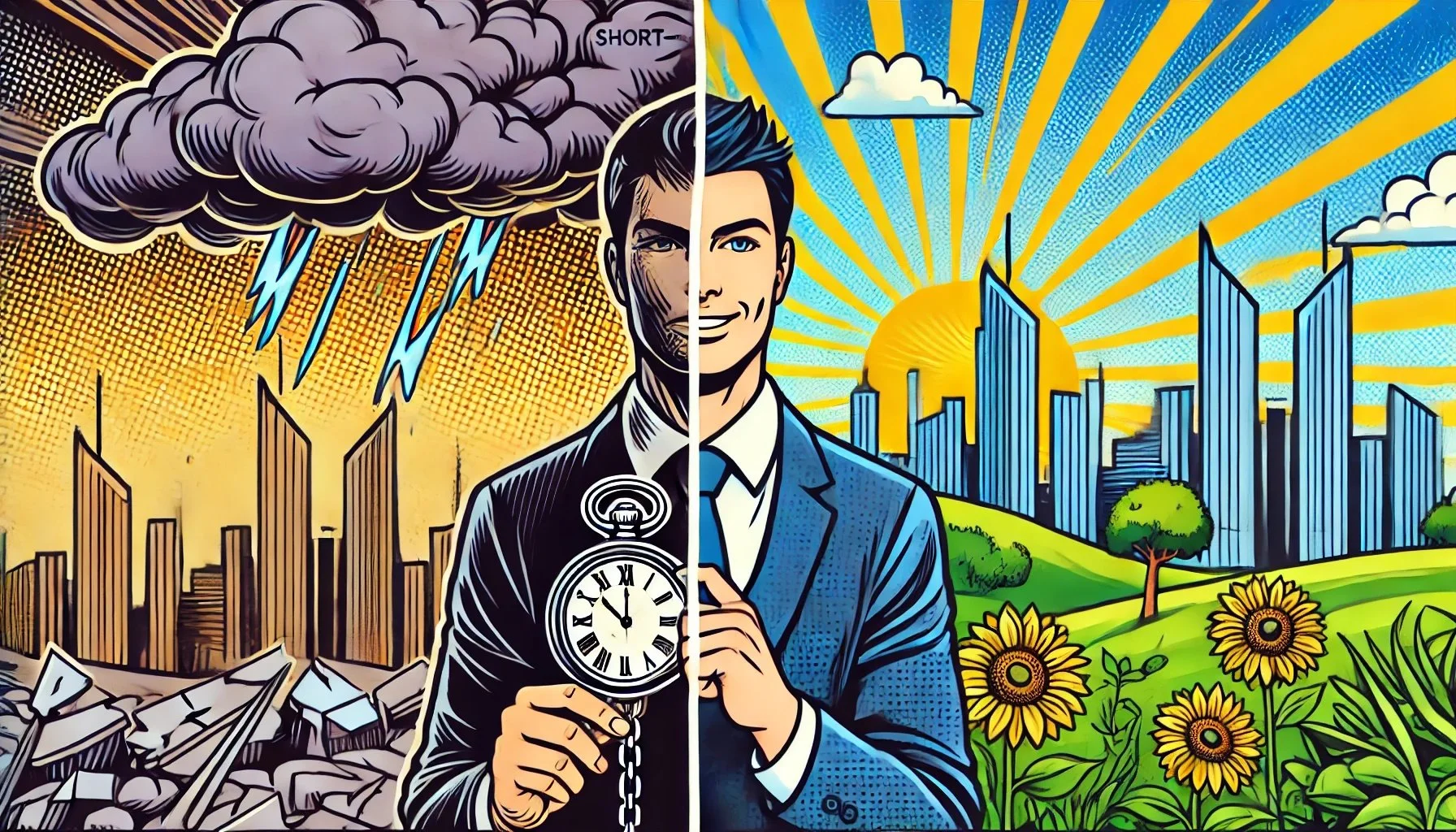Why 2025 Will Both Suck and Be Fantastic - The Stockdale Paradox
Author: Jurgen Appelo
My prediction for 2025 is that each day will find some creative way to suck, but overall, the year will be fantastic.
I will trip over countless mishaps but plan to come out healthy and alive. Every tool I use will frustrate me—as always—but user experiences will improve dramatically overall. And yes, terrible coffee will always find me—but even that will show a steady upward trend.
Does that sound contradictory? Welcome to my world. I'm a proud short-term pessimist and a long-term optimist. People smarter than me call this the Stockdale Paradox.
What Is the Stockdale Paradox?
Named after Admiral James Stockdale, a U.S. Navy officer and Vietnam War POW, this concept was coined by Jim Collins in his bestseller Good to Great. It’s about juggling two seemingly opposing attitudes:
“You must never confuse faith that you will prevail in the end—which you can never afford to lose—with the discipline to confront the most brutal facts of your current reality, whatever they might be.”
My translation: Expect a loss every day, but believe you will win in the end.
This isn’t about always walking around with a smile on your face—which makes you look pretty stupid, if you ask me—or ignoring the dumpster fire on your desk. It’s about staring reality in the face, expecting it to spit in your eye, and still believing you’ll come out on top with your head and middle fingers raised.
Stockdale’s Story
Admiral James Stockdale survived over seven years in the infamous "Hanoi Hilton" prison camp. He suffered torture, deprivation, solitary confinement—you name it. Yet, he not only survived but also led his fellow prisoners in resistance.
So how did Stockdale endure his predicament when so many others broke? Stockdale’s answer was blunt: the optimists were the first to give up.
“They were the ones who said, ‘We’re going to be out by Christmas.’ And Christmas would come, and Christmas would go. Then they’d say, ‘We’re going to be out by Easter.’ And Easter would come, and Easter would go. And then Thanksgiving. And then it would be Christmas again. And they died of a broken heart.”
Stockdale didn’t have much patience for pessimists either. Pessimists might accurately see how grim a situation is, but without faith in a better outcome, they’re just stuck wallowing in despair—a one-way ticket to defeat.
Why It Matters
The Stockdale Paradox helps with navigating adversity in any area of life. Whether you’re running a business, leading a team, or simply trying to survive another day with your kids and in-laws, this mindset offers clarity and hope. Here’s what it teaches us:
Don’t sugarcoat reality. Ignoring or denying your problems won’t make them disappear. The first step to overcoming any obstacle is facing it head-on.
Keep the faith. No matter how bleak things look, never lose sight of your ultimate goal. The belief in a brighter future is what keeps you going.
Avoid blind optimism. Unrealistic expectations aren’t hope—they’re a recipe for despair. True resilience comes from acknowledging the struggle without losing hope.
Avoid blind pessimism. Giving up hope before trying to get through your ordeal is a self-fulfilling prophecy. You will get what you expect.
The Stockdale Paradox isn’t about toxic positivity or defeatist pessimism. It’s about walking the tightrope between realism and hope.
Related Concepts
Hope for the Best, Expect the Worst
This old saying might sound like Stockdale’s philosophy, but it falls short in a crucial way: it implies passivity—a sense of waiting for things to go wrong while mentally preparing yourself for disappointment.
In contrast, the Stockdale Paradox demands action. It’s not about bracing for impact but actively engaging with your current challenges while keeping your eyes on the prize.
Viktor Frankl’s "Tragic Optimism"
Holocaust survivor Viktor Frankl introduced the idea of "tragic optimism" in his seminal work Man’s Search for Meaning. Like Stockdale, Frankl believed that survival wasn’t about physical strength but about finding purpose, even in suffering.
Much like the Stockdale Paradox, tragic optimism is about finding meaning in the struggle and using that meaning to fuel your resilience.
Stoicism
The ancient philosophy of Stoicism offers another parallel. Stoics teach us to focus on what we can control—our thoughts, actions, and reactions—and to let go of what we can’t.
The Stockdale Paradox echoes this wisdom: accept your current reality (the things you can’t control), but don’t let it shake your faith in the future (the things you can).
Resilience
Resilience is the art of bouncing back from adversity, and the Stockdale Paradox is resilience in its purest form. By embracing harsh truths and clinging to hope, you build the strength to navigate life’s toughest moments.
Short-term Pessimism, Long-term Optimism
My personal philosophy started as a joke about my own attitude: I whine, bitch, and moan on a daily basis about everything going wrong, while I maintain an unwavering positive outlook on my personal future and the world at large.
Every day, I struggle with malfunctioning software and machines. And yet, I firmly believe that Artificial General Intelligence (AGI) and the Fourth Industrial Revolution, despite their many risks and issues, will ultimately help make life better for everyone. Yes, Claude, Gemini, and Copilot screw up many things. No, there won't be any Terminators.
Conclusion
So as we stumble into 2025, channel your inner Stockdale. Accept the brutal facts, dream big, and make the most of every injury, error message, and bad coffee along the way.
Happy New Year!
(Adapted from my upcoming book, Humans, Robots, Agents: New Fundamentals for AI-Driven Leadership with Algorithmic Management.)
Sources:
https://www.jimcollins.com/concepts/Stockdale-Concept.html
https://bigthink.com/health/stockdale-paradox-confronting-reality-vital-success/

